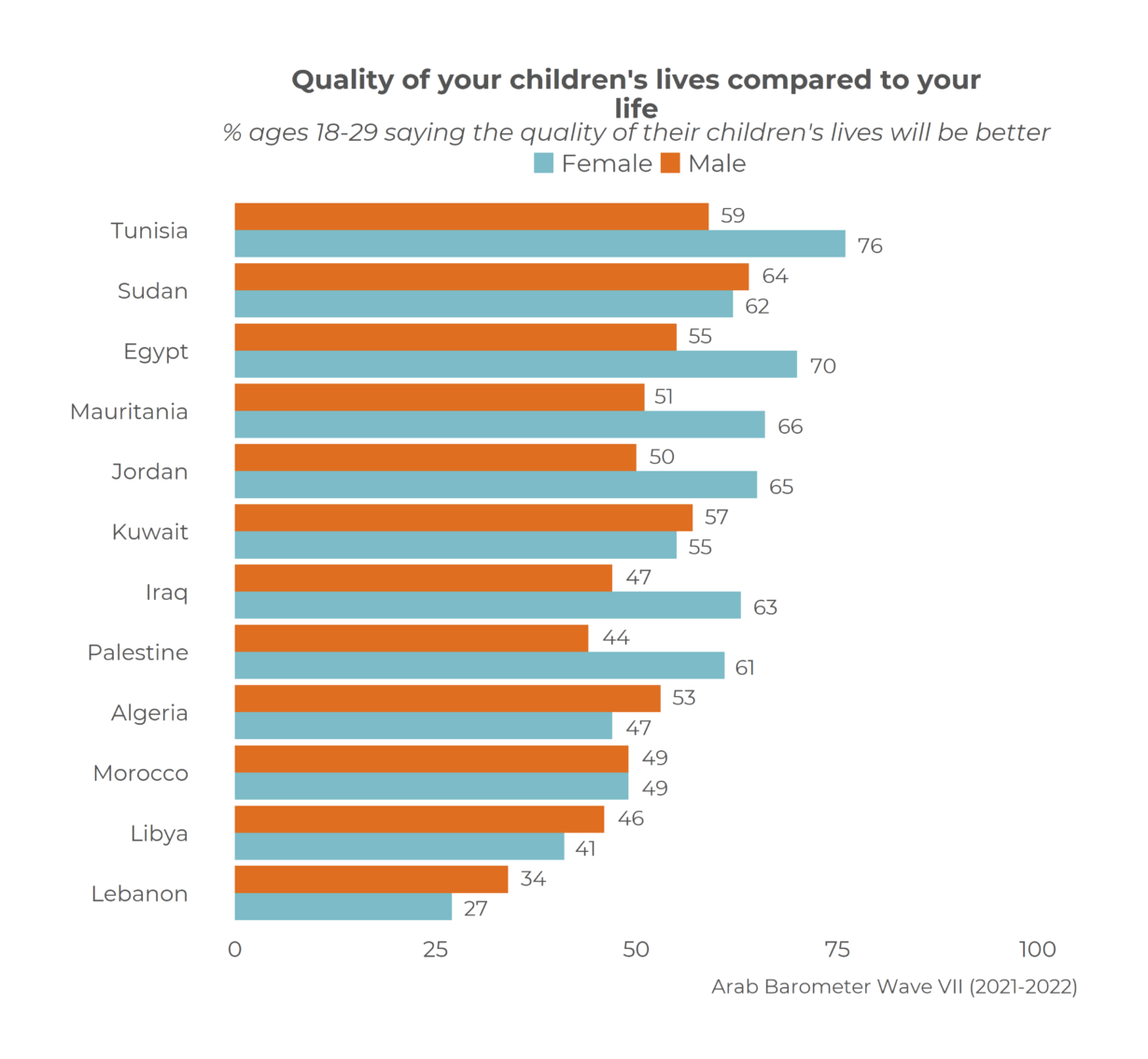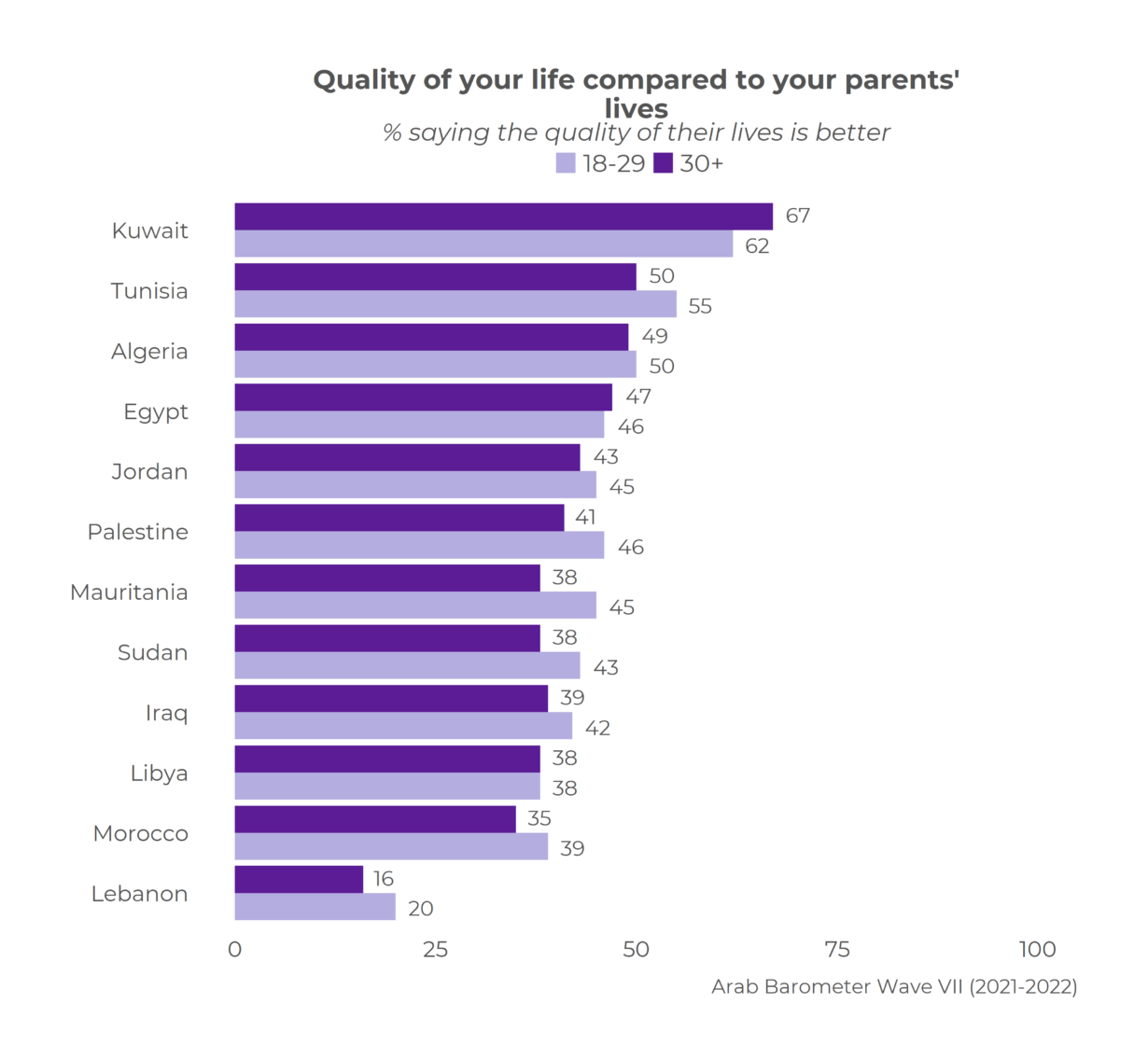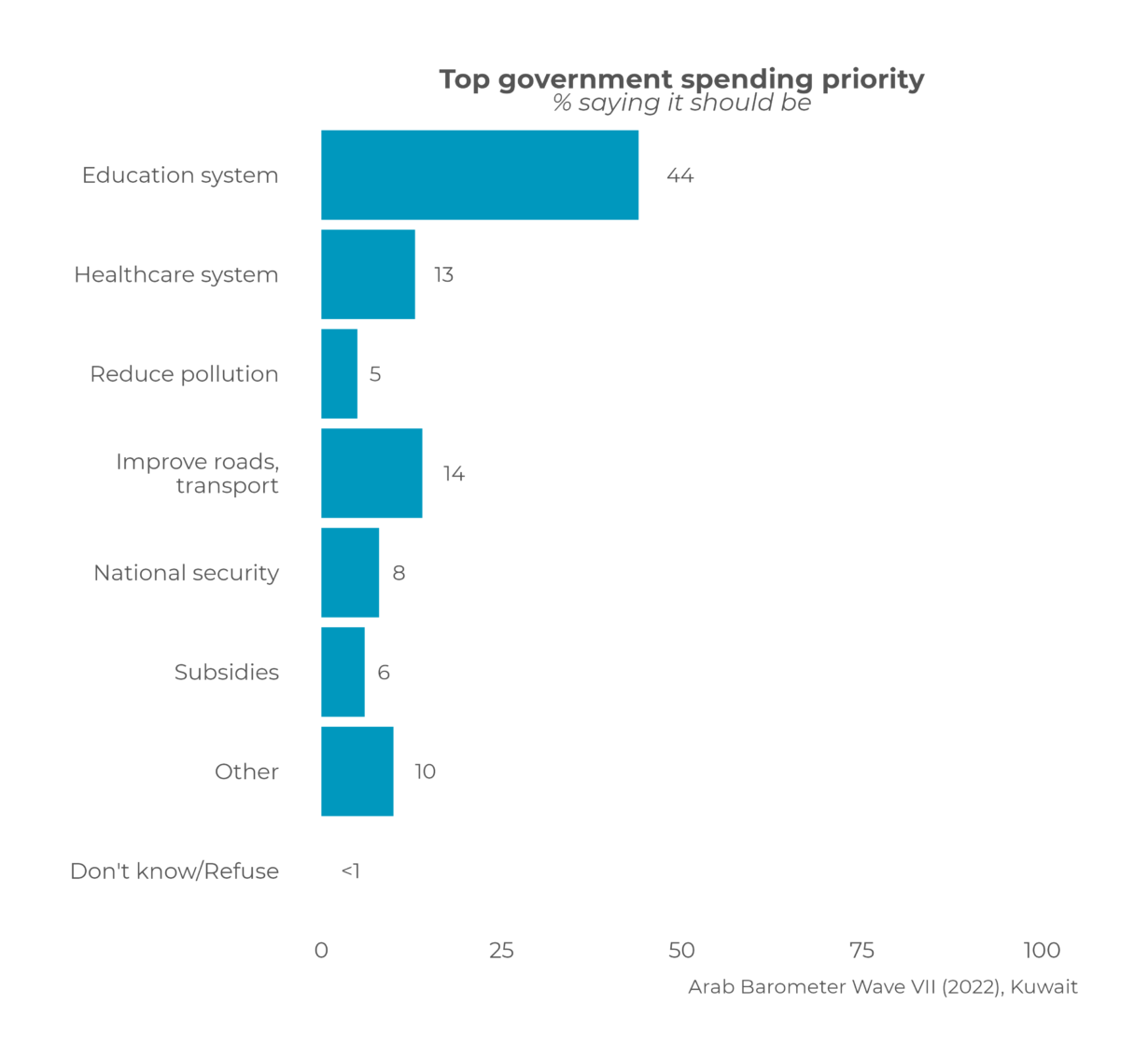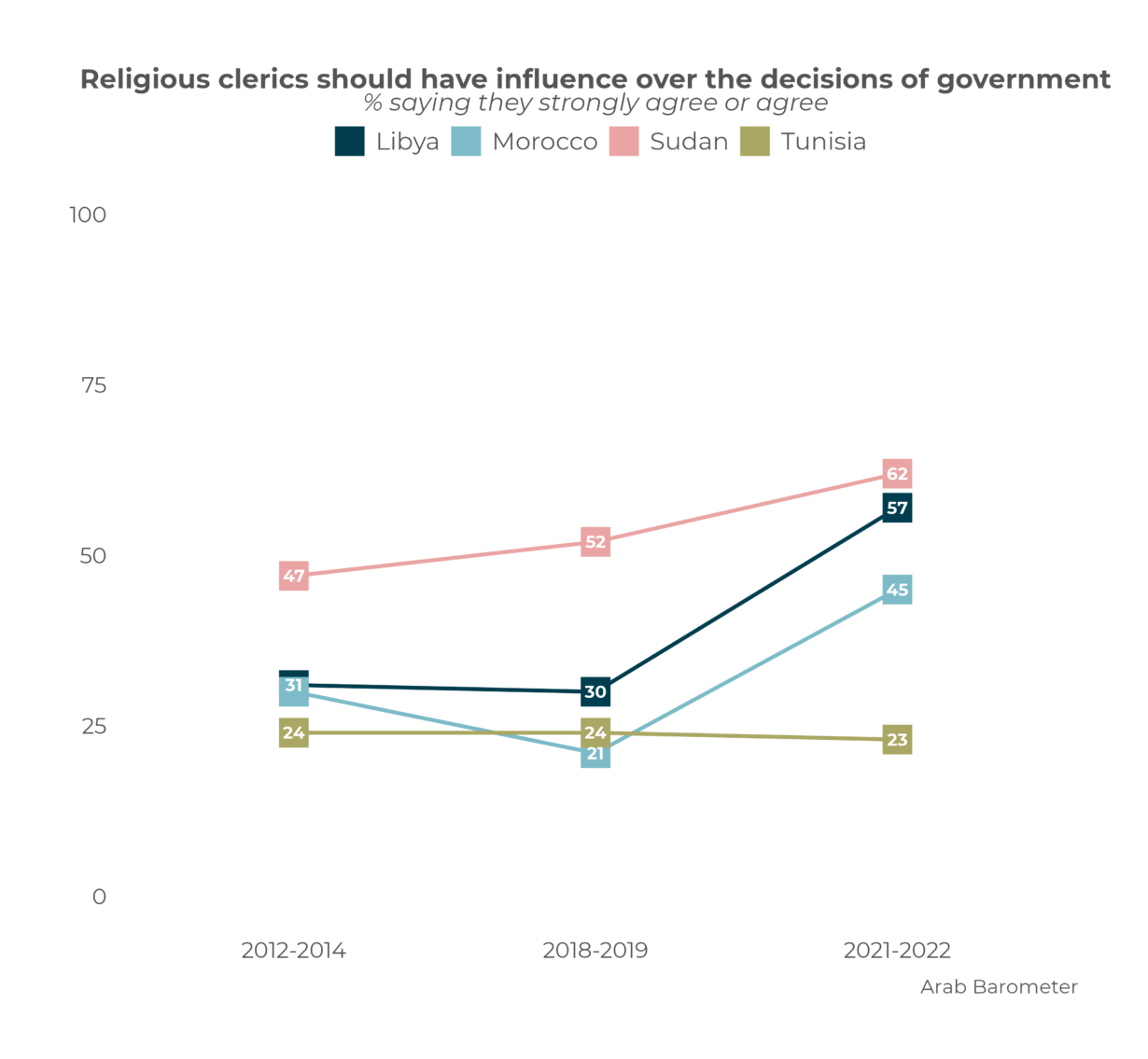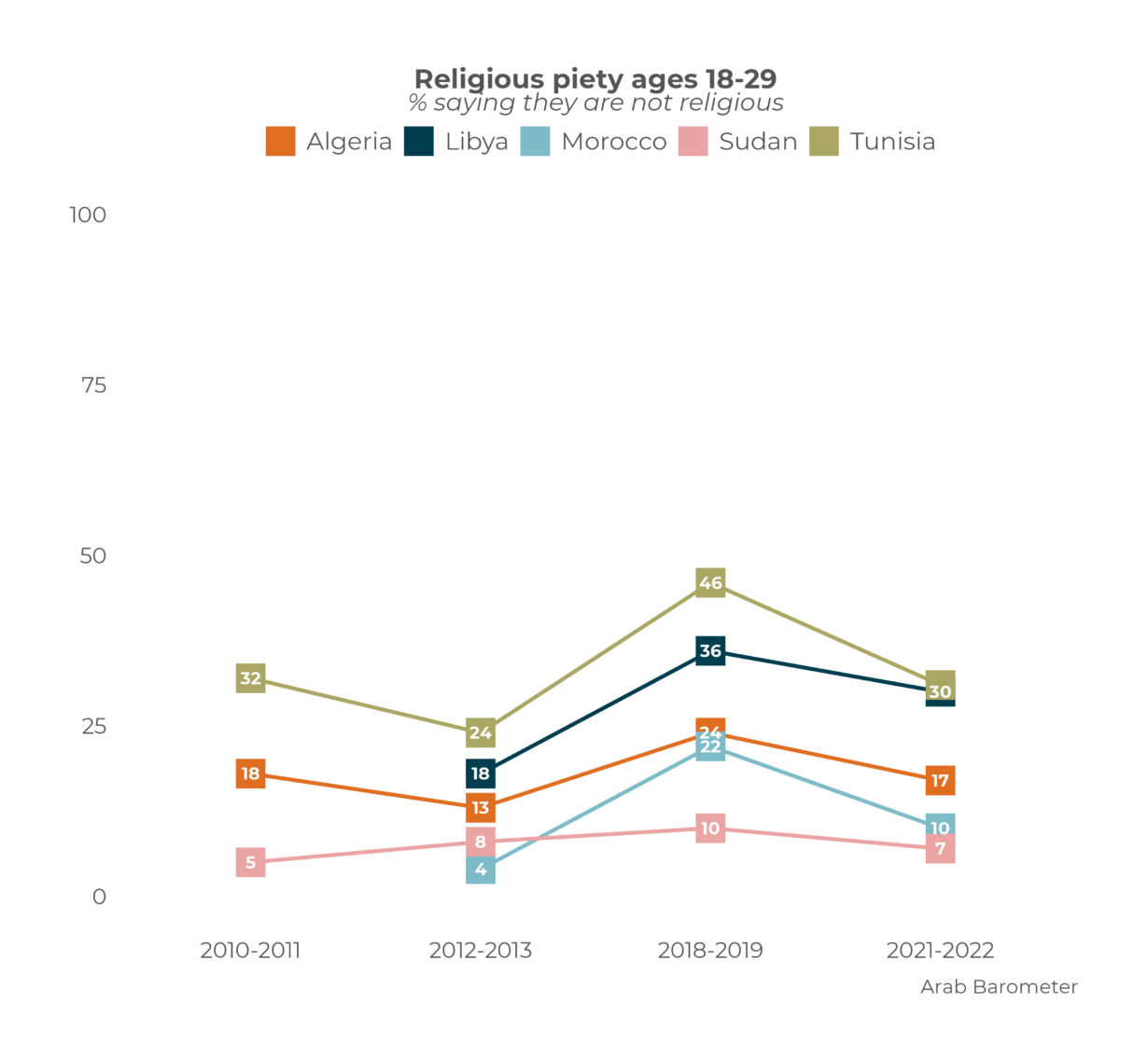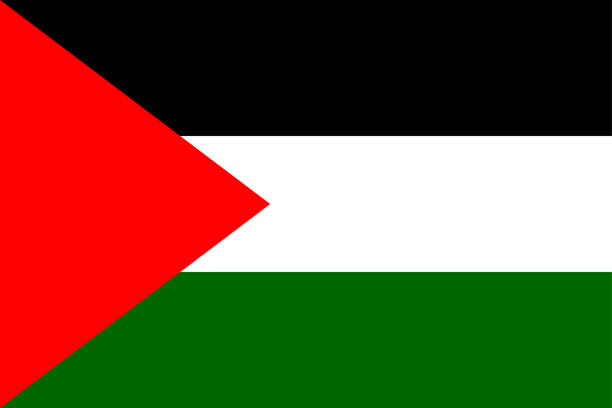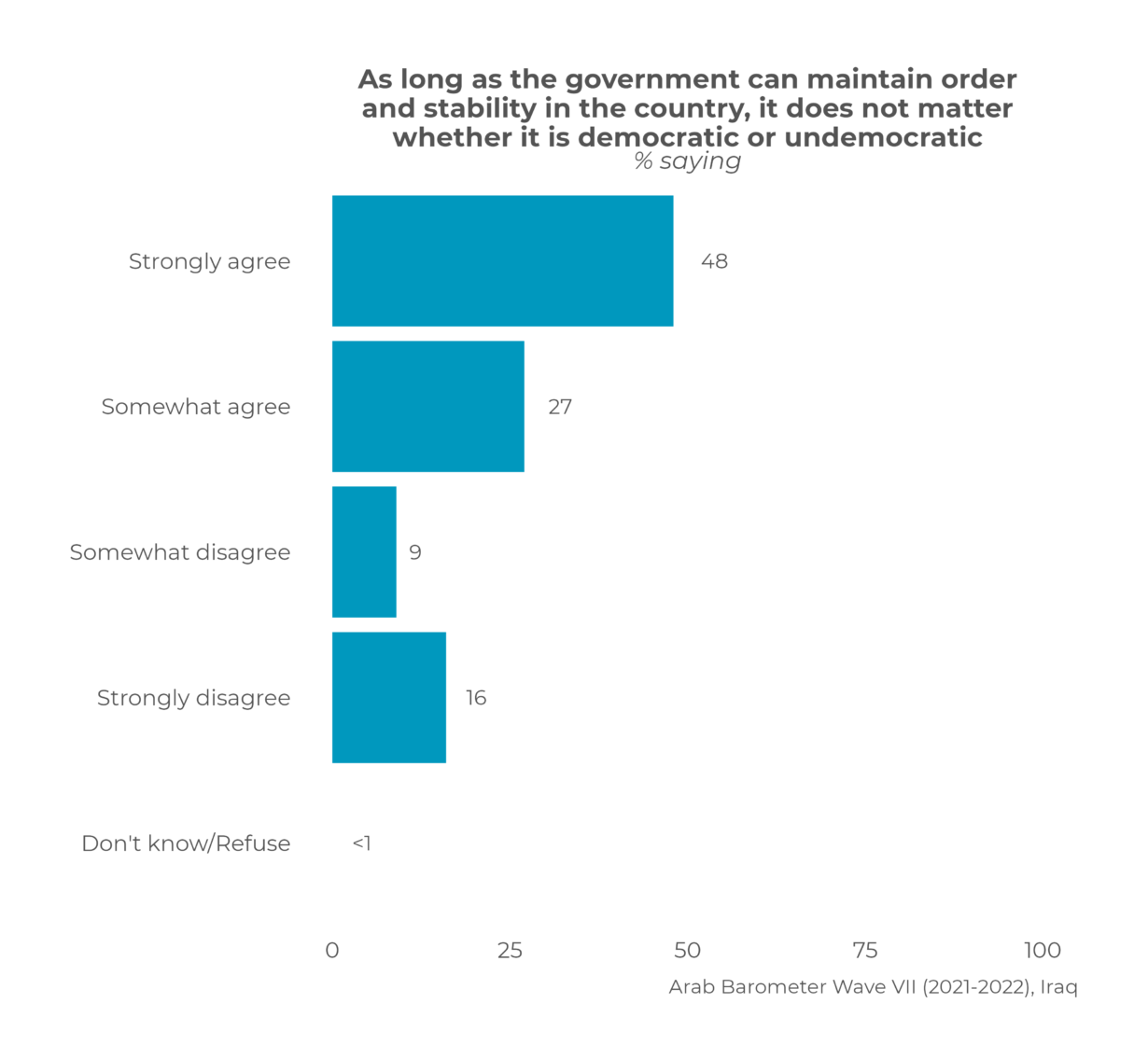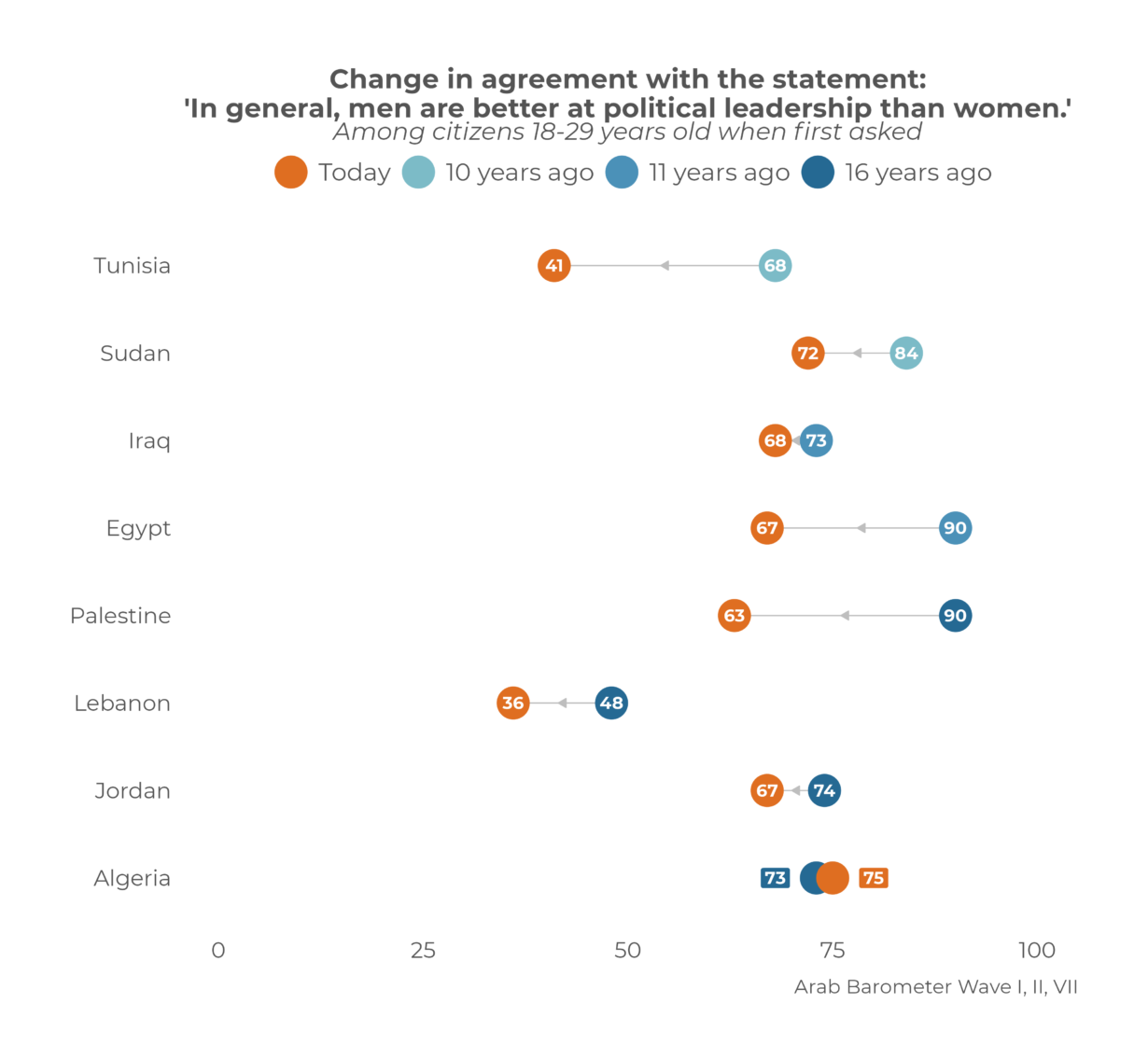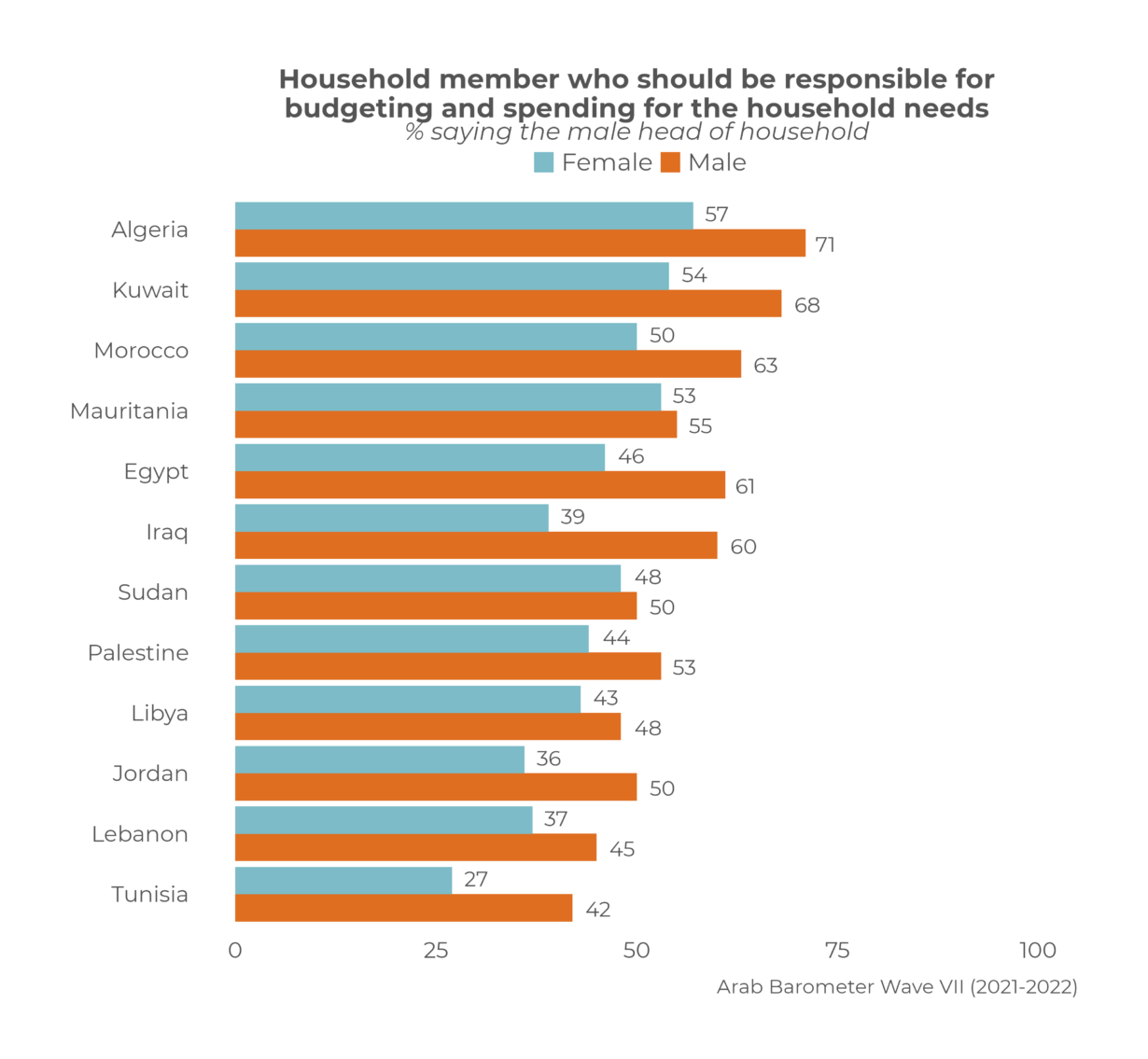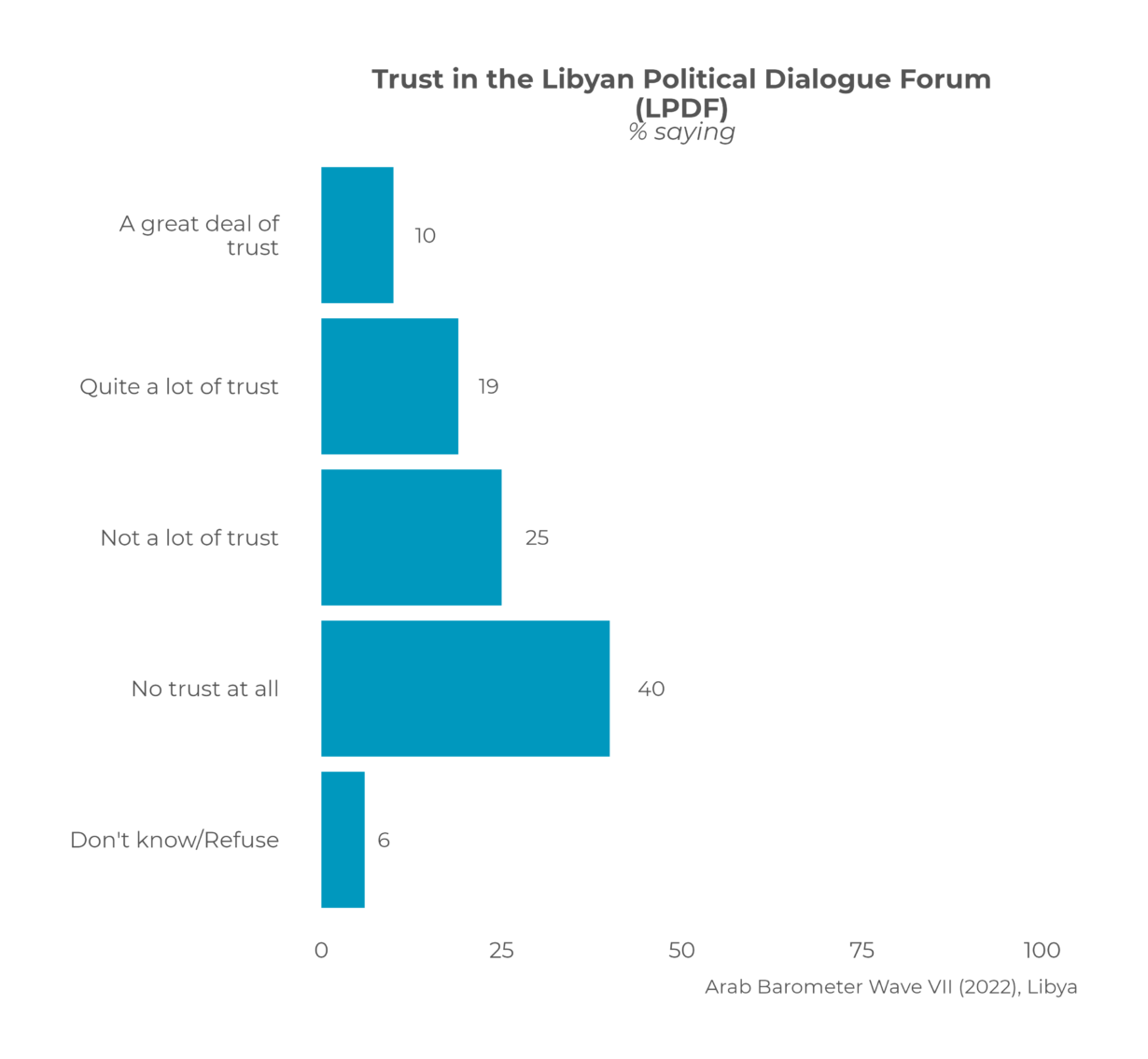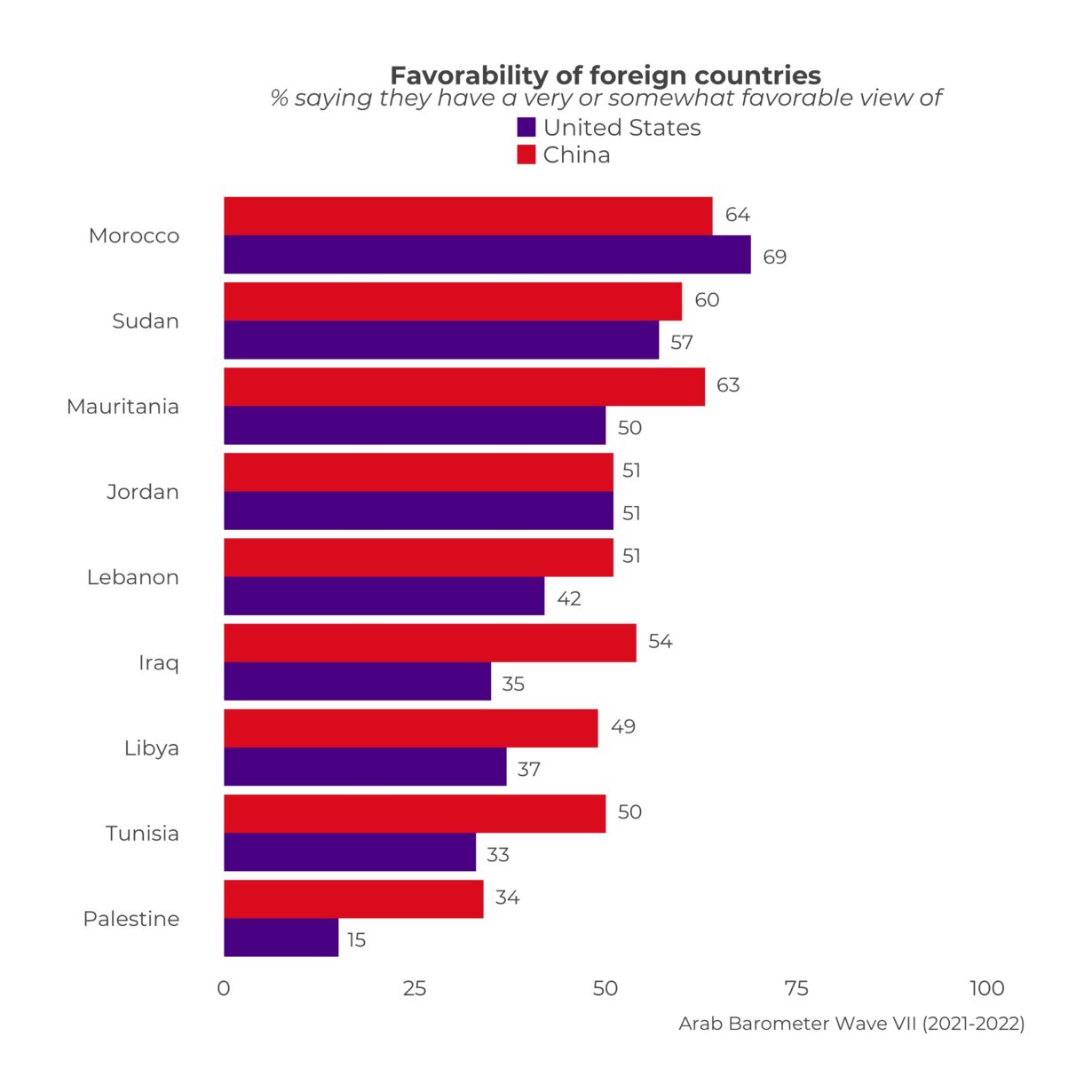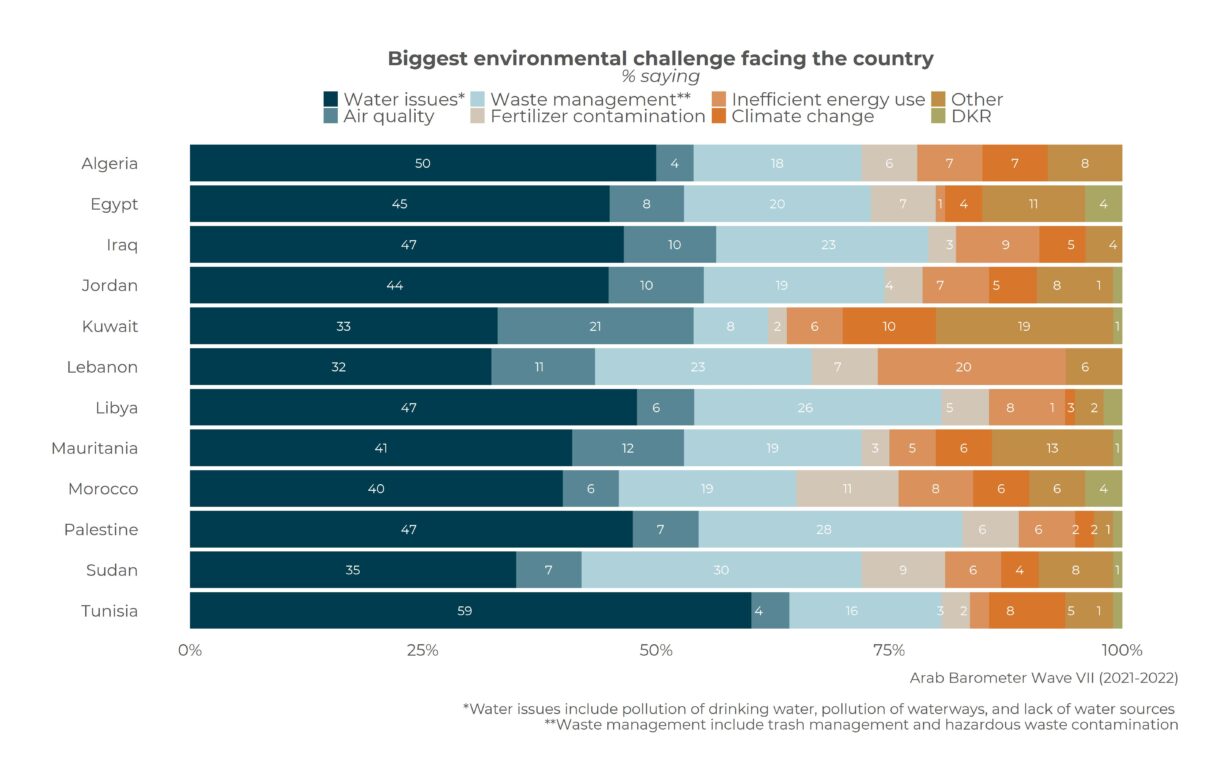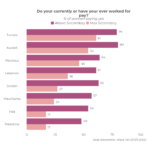What drives differences in future optimism in the Middle East and North Africa (MENA) region? Part I of this series suggested that there is no perfect correlation between quality of life and evaluations of economic conditions. MENA citizens can believe that their quality of life in the future will be better, even if they simultaneously have less faith in the…
Youth Outlooks: Life Quality and Economic Conditions (PART I)
Compared to the world’s median age of 28, the median age in the Middle East and North Africa (MENA) is 22, making the youth a substantial 28 percent of the population in the region. Unemployment rates are increasing as the region’s population grows almost twice as fast as the world’s overall. The quality of life for the youth is thus…
Making sense of the Kuwaiti June 2023 Elections
For political scientists monitoring the Arab world, the Kuwaiti elections typically pose two questions. First, how is it that only one woman is elected to parliament in a country where 13 women were candidates and a country with several women chief executive officers? Second, why are there so many elections in general? According to 2022 Arab Barometer data, younger Kuwaitis…
A New Dawn for Political Islam?
The Middle East and North Africa region (MENA) has seen an increase in levels of religiosity, particularly among youth, over the last five years. What implications might this have for the region? Does this rise in personal religiosity correspond with changes in views about the proper role for religion in politics? Might this change foreshadow a revival in fortunes of…
MENA Youth Lead Return To Religion
Personal piety is not constant across space or time. The Pew Research Center has found that levels of religiosity vary by a number of factors, including years of education, life expectancy, income, and levels of economic inequality. Others have found that during times of crisis such as natural disasters or terrorist attacks, there tend to be associated increases in levels…
Support for armed struggle in Palestine rises in response to recent settler attacks
In light of the recent events in Huwara and the northern West Bank, Palestinian public attitudes become more militant as support for armed struggle rises, support for the two-state solution drops, and the vast majority opposes the Aqaba meeting; parallel to that, trust in the PA declines, demand for the resignation of president Abbas rises, and for the first time…
Iraq’s Pulse Twenty Years After The Invasion
On March 20, 2003, U.S. forces invaded Iraq and toppled the regime of Saddam Hussein. The U.S. then set about a political transformation of Iraq with the stated goal of bringing about democracy, including instilling a parliamentary system with regular elections. Since that time, Iraq has suffered significant turmoil, including an armed resistance against the U.S., civil conflict, and the…
Female Political Participation Inspires Confidence In Female Political Leadership in MENA
Support for women as political leaders has dramatically increased inmost MENA countries according to Arab Barometer trend data. Disagreement with the idea that men make better political leaders than women is at an all-time high in eight of the eleven countries for which Arab Barometer has trend data.[1] Not only are these changes seen at the population level, but also…
Confounding and confirming expectations on the “care economy” in MENA
Written and released before COVID-19 was declared a global pandemic, a 2020 Oxfam report suggested that if women were to be paid for their unpaid work, it would be worth nearly US$11 trillion globally. This sum likely varies based on the proportion of women gainfully employed in any region. At 18 percent, the 2021 rate of women’s participation in the…
UN Envoy to Libya proposes a new initiative, what do Libyans want?
Following months of political deadlock, a new political body is in the making to shake up Libya’s political impasse. On February 27, 2023, UN special envoy to Libya, Abdullah Bathily, told the UN Security Council he plans “to establish a High-level Steering Panel for Libya.” Bathily’s plan aims to facilitate the organization of elections, both legislative and presidential in the…
As great power competition in the Middle East heats up, polling data shows a complex picture of popular attitudes
This piece is part of a four-part series published by the Middle East Institute in cooperation with Arab Barometer analyzing the results of the seventh wave of the Arab Barometer surveys. Apart from Europe and the South China Sea region, the Middle East and North Africa is one of the epicenters for what the U.S. has termed “great power competition” especially between the…
Citizen priorities on the environment and climate change in MENA
This piece is part of a four-part series published by the Middle East Institute in cooperation with Arab Barometer analyzing the results of the seventh wave of the Arab Barometer surveys. The results of the seventh wave survey from Arab Barometer, a non-partisan research network that provides insight into Arab citizen views, shed light on regional perspectives on issues of climate change, water resources,…
Topics
- Charity2
- Corruption113
- COVID-1969
- Democracy35
- Discrimination13
- Economy225
- Education51
- Environment36
- Extremism19
- Freedoms50
- Gender Issues159
- Governance253
- Health44
- International Relations192
- Labor Market34
- Media31
- Migration63
- Political Institutions213
- Political Participation33
- Political Systems60
- Refugees6
- Religion118
- Security31
- Social Justice44
- Wellbeing2
- Youth75
